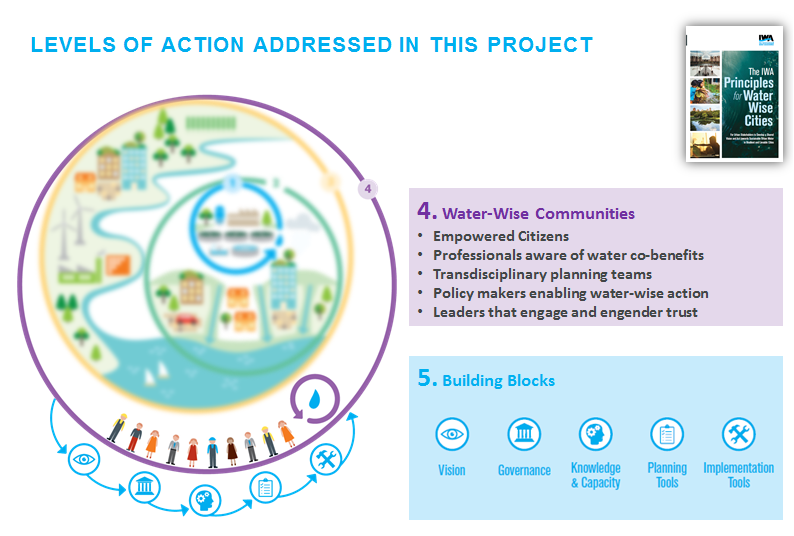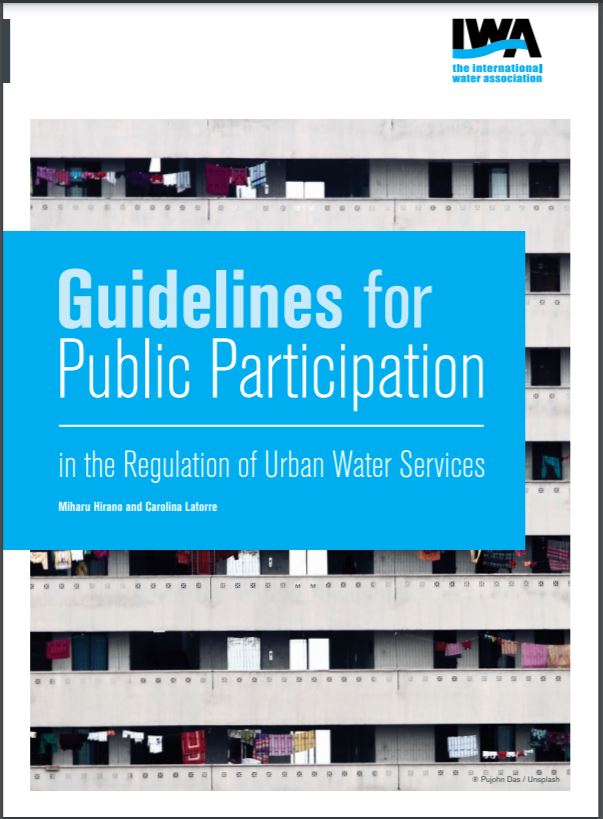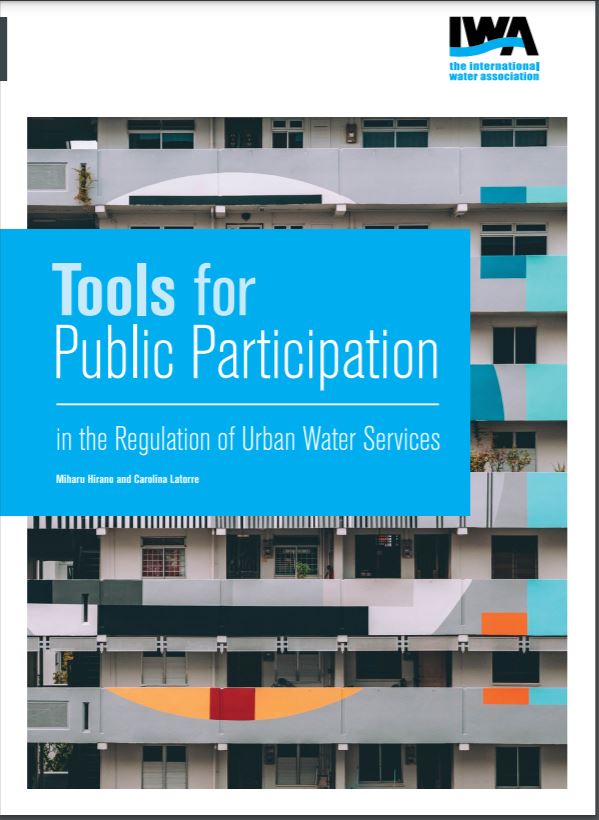Public participation at a glance
Public participation is a way to enable informed dialogue amongst diverse stakeholders. An adequate process can contribute to good decision-making and improve trust among citizens, ultimately contributing to the effectiveness of such decisions and the sustainability of the whole system.
Effective provision of urban water, sanitation and wastewater services relies upon the collective actions of interdependent and diverse stakeholders.
Goal 6 of the Sustainable Development Goals recognises public participation as an important means of implementation to ensure availability and sustainable management of water and sanitation for all.
In this project we look into the use of public participation within the decision making process of setting tariffs and prices for the provision of water services. The process of deciding what will be the water bill touches sensitive factors like affordability, cost recovery and willingness to pay. Bringing diverse stakeholders to a dialogue that is fit for purpose is therefore a delicate matter.
If not well managed, public participation can prolong decision-making, in turn increasing associated costs and affecting trust in the overall system.
Although one-size-fits-all approach for public participation would not work, a systematic way of thinking may be helpful when planning and implementing participation. Taking tariff-setting as the focused area of case studies, the project will develop unique tools to assist in enhancing the benefits of public participation.
Objectives
To (1) raise awareness of the benefits and challenges in the use of public participation in tariff-setting processes and clarify misconceptions, (2) provide guidance to incorporate or (3) improve participation processes; all while enabling stakeholders to share experiences and lessons learned in their own participation methods to advance its benefits.
Target audience
There are a number of beneficiaries of this project, including:
- Staff members of water service providers
- Water services regulators
- Customer representatives
- Community at large
Expert Group
For the purpose of achieving the project objectives, IWA is relying on a group of experts to provide inputs and feedback based on diverse field of expertise and practical experiences. The group consists of IWA members and partners, including representatives from the following Specialist Groups: Institutional Governance and Regulation, Public and Customer Communications, Working Group on Tariff and Finance of Statistics and Economics.
| Name | Affiliation | Position | Country |
| Mr Oscar Hugo Pintos | AFERAS | President | Argentina |
| Dr Briony Rogers | Monash University | Senior Lecturer | Australia |
| Mr Stephen Fernando | Mackay Regional Council | Manager Business Services | Australia |
| Mr David Zhang | Sydney Water | Service Planning Lead | Australia |
| Mr Ivaylo Kastchiev | Energy and Water Regulatory Commission (EWRC) | Head of Price Regulation & Business Plans, Water Supply & Sewerage Services Department | Bulgaria |
| Ms Pascale Guiffant | SUEZ environnement | Sustainable Development & Reputation Deputy Director | France |
| Mr Kazuya Naito | TSS Tokyo Water Co.,Ltd. | Director, General Affairs Department | Japan |
| Ms Marta Carvalho | Águas de Portugal | Direção de Engenharia | Portugal |
| Mr Teodor Popa | Water Company Brasov | Financial Manager | Romania |
| Ms Lenka Kruckova | WaterLex | Legal Officer | Switzerland |
| Dr Duncan Thomas | The University of Manchester | Lecturer | United Kingdom |
| Ms Emanuela Yasenova | Severn Trent Water | United Kingdom | |
| Dr Liz Sharp | The University of Sheffield | Senior Lecturer | United Kingdom |




